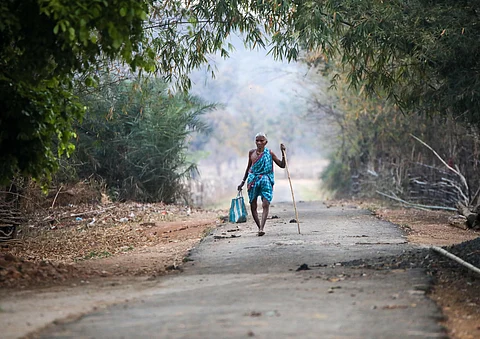Forest rights under siege: Petitioners challenge misrepresentation of FRA ahead of Supreme Court hearing
Civil society members have raised concerns over the misrepresentation of the Forest Rights Act (FRA), 2006, ahead of a Supreme Court hearing scheduled for April 2, 2025. The hearing is based on petitions challenging the constitutionality of the Act.
A group of researchers, former forest officials, activists, lawyers and policy experts highlighted issues such as human rights violations, large-scale dispossession, legal setbacks and environmental degradation.
In a press statement, the members said the FRA faced implementation hurdles due to a lack of political will, resistance from the forest bureaucracy, and corporate interests seeking to bypass environmental safeguards.
A recent analysis revealed that only three states in the country had a notable number of Community Forest Resource rights.
“The FRA does not grant rights but recognises pre-existing rights. The Act contains no provision for evicting an individual or family if their land claim is rejected. Evidence shows that families are often not notified or given reasons when claims are rejected, or they receive approval for much less land than they originally claimed,” the statement by the civil society members said.
The members argued that the petitions undermined parliamentary authority as well as the authority of the Gram Sabha. The Gram Sabha is a statutory body enshrined in the Constitution through the 74th Amendment and plays a crucial role in Indian democracy and legal frameworks such as the Panchayats (Extension to the Scheduled Areas) Act (PESA), 1996.
“Under the FRA, Gram Sabhas ensure gender and youth inclusion in governance decision-making,” the statement added.
The civil society members alleged that the petitions sought to create divisions between Scheduled Tribes and Other Traditional Forest Dwellers (OTFD). They pointed out that the FRA movement had insisted on providing benefits to diverse communities, including pastoralists, semi-nomadic groups, Particularly Vulnerable Tribal Groups, Dalits and Denotified Tribes. These communities have relied on forests for generations but have been systematically denied land and access rights, the statement said.
The statement further highlighted concerns about resettlement projects from protected areas that are often termed “voluntary.” It argued that such resettlements could be coercive, achieved through threats of violence, pressure, or the dilution of pre-existing rights. “Human rights concerns need to be centred when calls for eviction are justified through the idea of ‘voluntary resettlement’,” the statement said.
The members stressed that the FRA ensured bottom-up governance and a transparent three-tier claims procedure while protecting the rights of Adivasi and OTFD communities. However, they alleged that these communities continued to face “colonial and casteist” political tactics, false charges, retaliatory violence, and derogatory labels such as “encroacher.
“It is essential to examine oppositions or dilutions to the FRA through the lens of constitutional morality,” they said.
The members also noted that, in recent years, the Union Ministry of Tribal Affairs had issued multiple statements about FRA violations in resettlement projects targeting forest-dwellers.
“In 2024, the Ministry of Tribal Affairs launched the 2024 PM Juga Scheme, which aims to saturate and expedite the recognition of forest rights, empower tribal communities, and provide sustainable livelihoods through various governmental schemes. These assertions by the state reinforce the constitutionality and power of the Act,” they pointed out.
With the upcoming hearing posing risks of large-scale dispossession and systemic hurdles affecting FRA implementation, the civil society members urged urgent attention to the matter.
Background of the case
After the FRA was implemented in 2007, multiple petitions were submitted to High Courts and the Supreme Court by retired forest officials and wildlife non-governmental organisations challenging its constitutionality. The petitioners argued that the Act violated fundamental rights, conflicted with conservation objectives, and exceeded Parliament’s legislative competence.
In 2014, the petitioners filed an interlocutory application claiming that the FRA’s execution process was flawed and that it enabled encroachments under the guise of voluntary resettlement of forest-dwelling communities in protected areas.
In January 2015, all cases were transferred to the Supreme Court for a collective hearing under Wildlife First & Ors vs Union of India & Ors. In 2016, the petitioners questioned the absence of action against families whose FRA claims had been rejected.
In early 2019, the Supreme Court passed an interim order seeking information from all states on actions taken to evict rejected claimants, a move that could have impacted 1.6 million families. Following public pressure and intervention from the Ministry of Tribal Affairs, the Court stayed the eviction order on February 28, 2019.
It directed state-level authorities to provide details on the legal procedures followed in claim rejections and requested the Forest Survey of India to conduct a satellite survey of the alleged encroachments.


